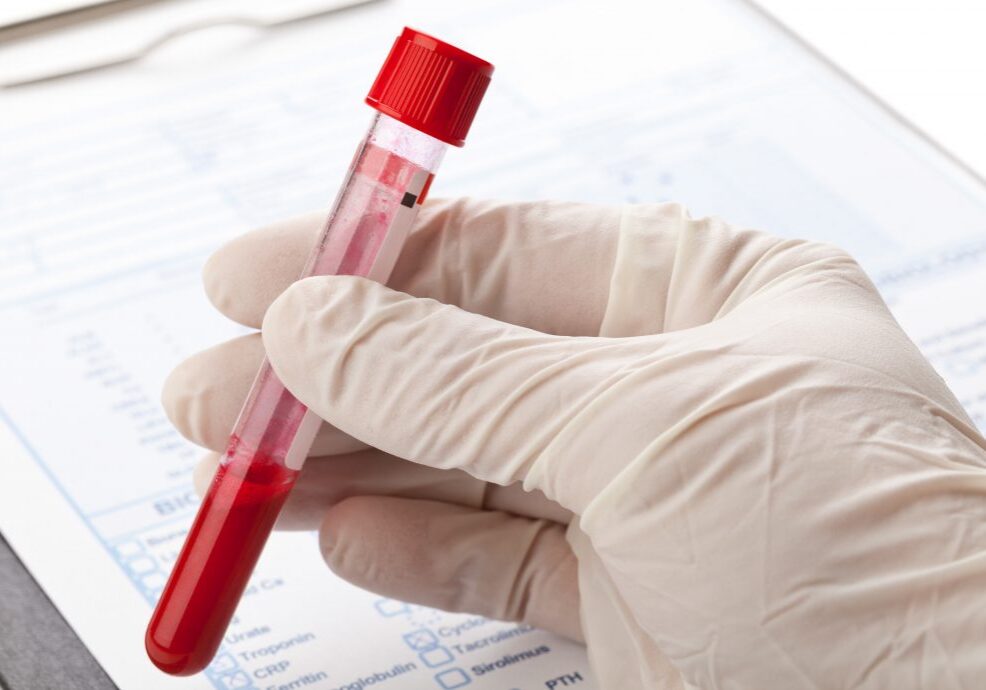Breaking Bad News
At Oracle Cancer Trust, we understand that it’s tough for doctors and nurses to share difficult news with patients who have Head and Neck cancer. It’s important to be understanding, honest, and supportive when delivering this delicate information. This article looks at the problems healthcare workers face when breaking bad news and gives advice on how to handle these situations well.
Patients often feel anxious and unsure while they wait for test results. It’s crucial for healthcare workers to recognize their emotional turmoil and provide support during this time. Using simple words to explain the diagnosis, what might happen, and the treatment options can help patients and their families understand better.
It’s also important to create a safe space where patients and families can openly share their feelings and worries without being judged. Serious illnesses can strain relationships, causing people to feel distant from each other. Talking openly about fears, hopes, and how the illness affects relationships can help everyone understand and support each other better.
Talking about end-of-life care can be hard for caregivers. It’s important to be sensitive and give information about the choices and help available. Supporting patients and caregivers as they make decisions is vital. It’s also important to communicate well so that patients and families don’t feel left alone and confused.
Sometimes patients look for information from non-medical sources, which can lead to misunderstandings. Encouraging them to ask questions and giving them accurate information can clear up any confusion.
Being honest and transparent when giving bad news is important. Patients appreciate clear communication so they can make informed choices. It helps to build trust by showing understanding, giving reassurance, and being there physically. It’s also important to give patients all the clinical information they need and answer their questions and worries.
Caregivers play a big role, so it’s important to recognize that and support them. Being approachable, listening to their concerns, and offering emotional support during tough times can make a big difference.
When sharing bad news, it’s important to be honest but also offer hope. Talking about treatment options and support systems can help patients and families cope with the diagnosis. It’s good to involve the whole family in conversations and make sure everyone in the healthcare team is on the same page.
Having access to support teams who can offer more information and emotional support is crucial. Healthcare workers should help patients find support groups and other resources that can help them.
By following these tips, healthcare workers can deliver tough news with understanding, honesty, and support. Creating an environment where people can talk openly, trust each other, and get all the information they need is really important for patients and their families.
Help coping support
When people are facing a cancer diagnosis and undergoing treatment it can be a long and difficult journey. The focus is usually on fixing and healing the body but a stressful time like this can be hard on mental health and put a real strain on people’s relationships. Find Out more

Using the power of football to help prevent cancer
This week, Oracle Head & Neck Cancer UK has launched an important awareness campaign in partnership with Bromley FC, using the reach of football to shine a light on head and neck cancer prevention and the life-saving importance of the HPV vaccine. Throughout the week, Bromley FC is sharing trusted health information with its supporters,…

Cancer Care: Why Mental Health Support Must Be Part of Every Cancer Journey
Oracle Head & Neck Cancer UK is proud to support the Daily Express Cancer Care campaign, a powerful series that shines a light on the often unseen emotional toll of cancer – and the urgent need for better psychological support for everyone affected. The campaign published over the past three weeks featured voices from across…

Ground-breaking blood test shows promise for early detection of head & neck and other hard-to-screen cancers
A new large-scale trial has found that the blood-based screening test known as Galleri test can detect more than 50 types of cancer – including cancers of the head and neck, which currently have no routine screening programme – and may significantly boost early diagnosis. The trial showed that, when used alongside existing screening methods,…

2 Minutes to Save Your Life: Oracle Launches HeadNeckCheck Campaign for Make Sense Week
This Make Sense Week (15-20 September), the European-wide head and neck cancer awareness initiative, Oracle Head & Neck Cancer UK, is championing both prevention and early detection – recognising that stopping cancer before it starts is just as vital as catching it early. Two Ways to Fight Cancer This Week Prevention Today: Head and neck…

Leadership update
After four successful years as CEO, Tamara Kahn has transformed Oracle into a respected national voice for head and neck cancer patients. She established a national presence, created a four-pillar RACE strategy (Research, Awareness, Collaboration and Patient/Community Engagement) and built strong policy influence. With these foundations now firmly in place, Tamara will transition from her…

Finding Light in Adversity: Seven inspiring stories through head and neck cancer
A new collection of patient stories from Oracle Head and Neck Cancer UK reveals how individuals facing head and neck cancer have discovered unexpected sources of strength, purpose and even joy during their treatment and recovery. The seven contributors share remarkably similar themes despite their unique journeys. Almost all emphasise the power of maintaining a…

NHS to fast-track patients with head and neck cancer into cancer vaccine trial
Patients with advanced head and neck cancers in England will be fast-tracked into a trial of a new cancer vaccine, as the NHS expands its world-leading trial ‘match-making’ service. The investigational cancer vaccine uses mRNA technology to help the immune system recognise and kill cancer cells containing human papillomavirus proteins. More than 100 patients with advanced head…

World Head and Neck Cancer Awareness Day 2025: The HPV Vaccine Could Save Your Life
27th July 2025 This World Head and Neck Cancer Awareness Day, Oracle Head and Neck Cancer UK has a simple but urgent message: HPV vaccination saves lives. With HPV-related head and neck cancers having doubled in the past 20 years, the charity is using today to remind the public that these devastating cancers are preventable…

Data from the National Disease Registration Service on HPV associated and HPV independent oropharyngeal squamous cell carcinoma
The Get Data Out Programme from the National Disease Registration Service (NDRS), part of NHS England, has published statistics on incidence, routes to diagnosis and treatment for patients diagnosed with oropharyngeal cancer in England by human papillomavirus (HPV) status. To our knowledge this is the first time data on oropharyngeal cancer by HPV status has…

Join Us for an Evening of Research, Impact, and Conversation
Research & Impact EveningDate: Monday 28th April 2025Time: 6:00 PM – 8:30 PMVenue: Skyline, Tower Suites, 100 Minories, London EC3N 1JY A Celebration of Research Join us for a meaningful and action-focused evening where we’ll be diving into some of the big conversations around head and neck cancer – especially those linked to HPV (human…



